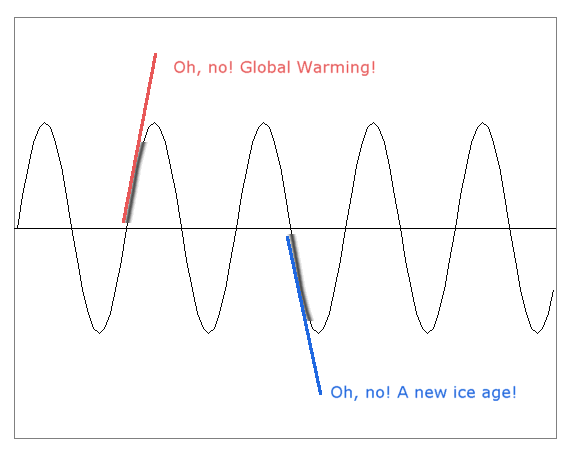|
|||
There are a lot of people out there who hate industrialization and have seized on carbon dioxide release as a way of fighting back. "Green House Effect!" they say; "Global Warming!" Oddly enough, thirty years ago they were saying "New Ice Age!" No-one seems to notice the contradiction. And now they claim that the earth is warming up even though for the last 60 years it's actually been cooling down slightly. (Details, details...) Still, they've even gotten enough credibility to try to pass an international treaty about it, one which Bush has dumped (for which he has reaped bitter criticism). It's possible that they're right, but the science is not there to prove it yet and right now at best what they have is guesses. The studies on which they base their conclusions are highly preliminary and do not explain much that we know about. For example, it's now known that Here's a strange one; it doesn't rank as a "theory" but it's an interesting conjecture. Ice cores were drilled in Antarctica on several of the glaciers, so as to study the snowfall patterns there. When they drilled to the bottom, they were surprised to find that there was several feet of slush beneath the ice; it was actually quite warm down there. Ice is actually a very good insulator, and the heat seems to be from the friction of the glacier as it travels along at a snail's pace; the motion is slow but the actual energy release is quite large. So the entire glacier is sitting on a layer of lubricant; it's being held in place by the strength of the ice in the glacier and a few places near the top which actually do hold on, plus much less friction beneath it than had previously been thought. The idea occurred to someone: what if it broke loose? Then the entire glacier would slide off into the sea and immediately break up into millions of ice bergs, converting a substantial part of the surface of the ocean from dark to white, and that would raise the albedo of the earth by a small amount -- which would cause further cooling world wide. The guess is that it would set off a new ice age. There's no real evidence for this, but it's an interesting fact that the recent cycle of periodic ice ages begins about the time that Antarctica moved over the south pole due to tectonic movement; it may be that every few hundred thousand years a glacier lets loose and starts a new one. There is much more that is known; other kinds of studies on glacial cores and tree rings and deposits of pollen and numerous other kinds of indirect evidence has permitted a comprehensive evaluation of the world's temperature over the last two hundred thousand years:
(The timescale is non-linear.) Note that the stability of the last 10,000 years is a historical aberration, a freak. And extremely rapid changes in temperature are not abnormal at all, such as a 13 degree F ris | |||


